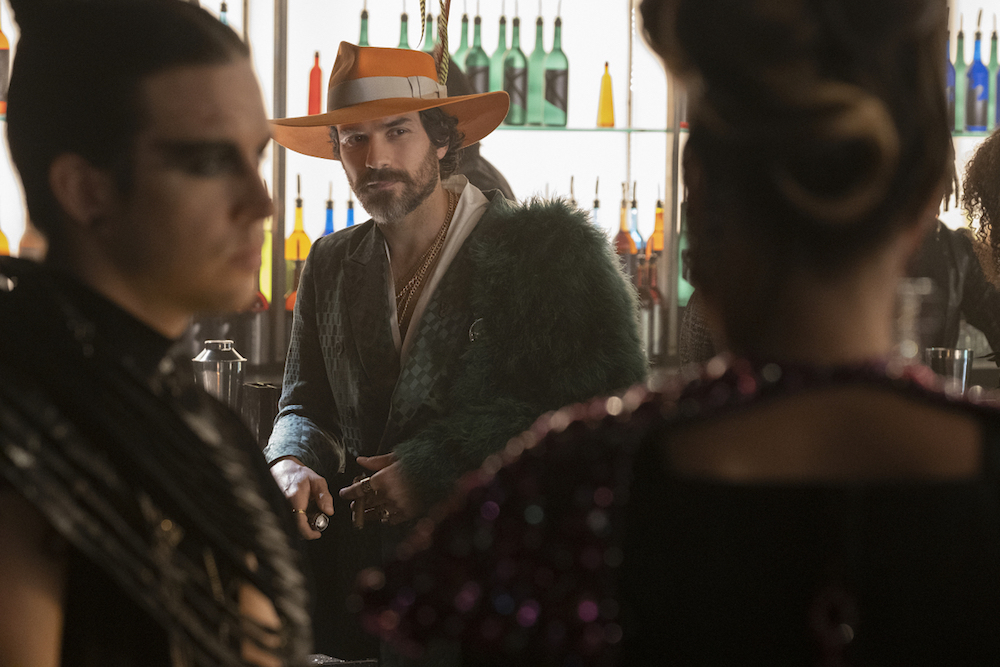For its first four episodes, Star Trek: Picard was a pretty dark and dour affair. Unlike The Next Generation, the cheerier and often easier-going series it follows, Picard has been imagining a Star Trek galaxy where things are a little more lawless and people are a little less moral. That makes for an interesting deconstruction of a legendary Starfleet captain, but it also has meant that Picard has lacked some of the lighter moments that are also a big part of Star Trek. Episode 5, "Stardust City Rag," corrects that issue to make for one of the more fun episodes the series has seen so far.
At the center of the episode is a fairly formulaic heist-type scenario, with Picard (Patrick Stewart) and the crew brokering a deal with criminals by pretending to be gangsters themselves. It's a fairly worn idea, one that's popped up on all sorts of TV shows, including Star Trek. But while the premise is played out, there's a good reason these moments have become such a cliche: they push characters into unexpected situations and encourage them to do something other than brood. In "Stardust City Rag," it seems like the cast is reveling in that opportunity, but nobody as much as Stewart himself.
Up to now, Picard's plan has been to find Bruce Maddox, the cyberneticist who created Data's daughters, in hopes of locating and rescuing Soji (Isa Briones). That takes him and his crew to a planet called Freecloud and its Star Trek equivalent of a seedier Las Vegas, Stardust City. A local criminal has Maddox, and in order to free him, the good guys are forced to pretend to be bad guys, with the help of the recently arrived Seven of Nine (Jeri Ryan). In order to pull off the plan, everyone has to dress up and play comically over-the-top crooks.
The result is one of the lighter extended moments of Star Trek: Picard, largely thanks to Stewart. While Rios (Santiago Cabrera) dresses up as a flamboyant Facer, Picard dons not only an unnecessary eye patch, but also a fairly ridiculous French accent. It's a goofy, nonsensical addition that does nothing to make Picard seem like a more trustworthy villain, but it lightens up the situation, and with it, the show as a whole. Star Trek: Picard has had a funny moment here or there, but this is the first time it's tried something this playful. It's a momentary return to the more relaxed feel of The Next Generation and its movies--likely because this episode had TNG actor and director Jonathan Frakes at the helm.

While Picard's brief turn as a tough-to-parse one-eyed gangster is a nice change of pace to lighten the mood, the rest of Episode 5 is plenty dark as it continues to expand on the supporting characters. The fact that Picard's current crew is a group of troubled, struggling spacefarers continues to be the engine that drives the show. This episode dips into the backstories of both Raffi (Michelle Hurd) and Seven, using both to explore Star Trek: Picard's ongoing theme of one generation failing another, and learning to live with that failure.
The show continues plumbing Star Trek history, as well as the central conceits of its 1990s series, for ways to challenge its characters, and Seven of Nine in particular serves as a great mirror for Jean-Luc and his choices, as well as a fascinating expansion on her Star Trek: Voyager character. The more human, more damaged take on the former Borg character is a great expansion on the Seven fans will remember, and it's great to see Picard draw from a series other than The Next Generation to shed new light on old story threads. Picard is having a deep and layered conversation with the rest of the Star Trek franchise, and the way it's re-examining past characters and key Trek ideas is its best aspect.
It's notable that "Stardust City Rag" doesn't include any scenes on The Artifact, the captured Borg cube where the plots of Soji and Romulan spy Narek (Harry Treadaway) are taking place--and it might be better for it. That's the plotline that seems to be indulging the show's worst impulses, whether it's falling into long explanations of made-up science that add little to the proceedings, or spending a lot of time establishing that yes, spies are doing spy things--and we still don't know what they are. Episode 4 was useful in expanding on Soji and Narek and making their story a little more compelling, but for the most part, time spent on The Artifact has been confusing.
"Stardust City Rag" continues an upward trend with Star Trek: Picard, where the show continues to build on the foundation it painstakingly built in the first three, much slower episodes. Its lighter moments are a nice change of pace, even if they stray a little toward the goofy, but Episode 5 also brings in a lot of serious character development that's further expounding on Picard's themes. With Episode 5, Star Trek: Picard strikes a precarious balance between the fun Trek adventures of the past and its darker, grittier take on the franchise, and it's one of the better episodes because of it.
Disclosure: ViacomCBS is GameSpot's parent company.


